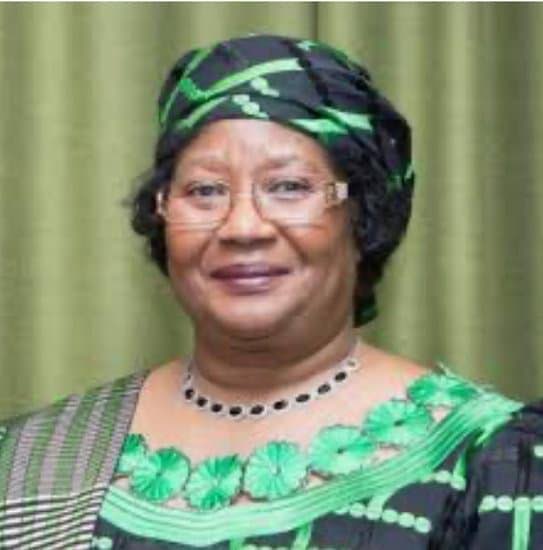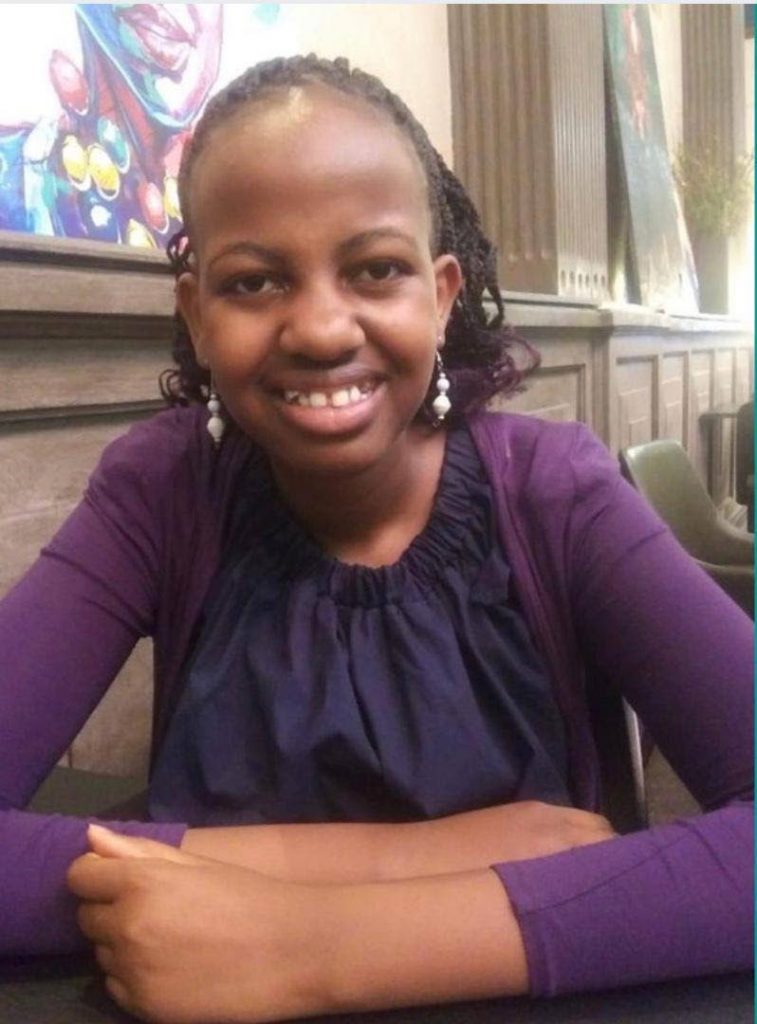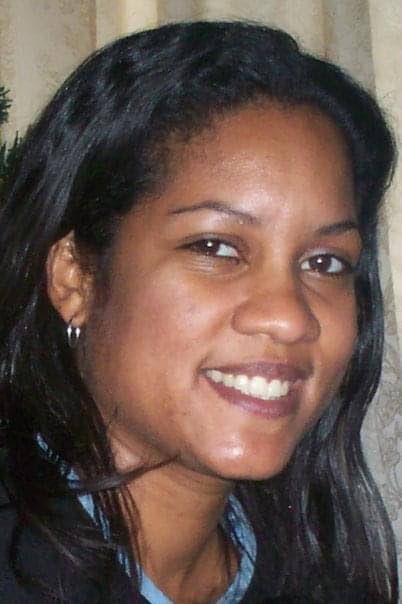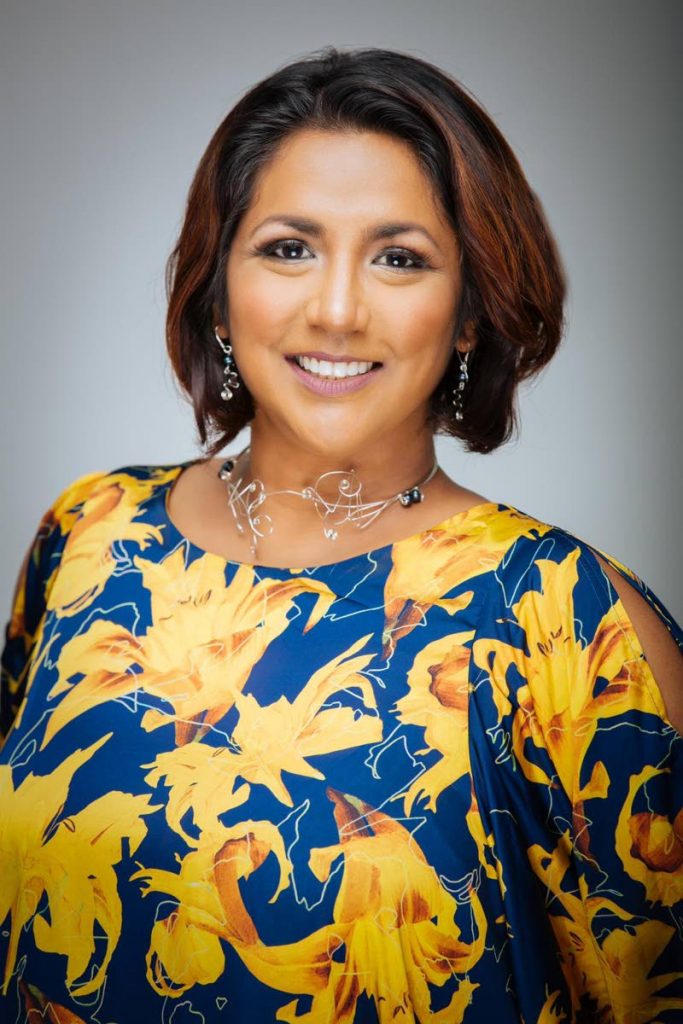'Leadership is a love affair'

LEADERSHIP is a love affair. It is a love affair between the leader to her people and the people for her leader.
Those were the words of connection which Dr Joyce Banda, the first female president of Malawi, gave at the inaugural Global Women’s Empowerment Virtual Conference hosted by Future Focus Empowerment Institute International and ADF Association.
The purely online conference hosted on Zoom on May 22 was oversubscribed with 400 people in attendance.
The conference was to empower, discuss the role of women in leadership and connect women across the globe with each other. Women from TT, Malawi, Kenya, the US and more joined in.
Banda is an educator and grassroots women’s rights activist. She was the vice-president of Malawi and became president in April 2012 when then President Bingu wa Mutharika died suddenly.
She was the Minister of Foreign Affairs, as well as Gender and Child Welfare. Before her political career, she was a grassroots activist in women’s rights.
Banda told the audience when wa Mutharika died, and people questioned whether a woman could hold the highest office of the land, it was her grassroots community who stood by her side and demanded she became president.
“By the time you are going into this public office, you have the love and trust of the people. When the day came for me to take oath, and the men were saying no way, we were going to have a man, we stood together…
“For me to be able to take oath, it was the grassroots people. In leadership, we must always have our consistency based on true love and service. When you have earned their love and respect, they will always stand with you.”
She said there were many stumbling blocks that could halt women from participating in politics.
Women interested in politics watch carefully how female politicians are treated by fellow politicians, the media and public comments and get turned off.
“They see the smear campaigns against women politicians and how their names are dragged through the mud and the professional women who watch and want to keep their dignity, shy away from politics.”
That affects the quantity and quality of the female politicians because those who do not have a job or a reputation to risk, will throw their name into the political arena and those who are qualified would not want to risk their reputation.
“There is no way a professor is going to leave work and stand in front of a parliament, and end up being called all kinds of names.”
Despite the prevalence of patriarchal biases against female politicians, Banda still touts the progressiveness of African countries in putting female leaders in the highest office of the land.
African countries so far have had four female heads of state. These are Ellen Johnson Sirleaf, President of Liberia; Ameenah Gurib-Fakim, President of Mauritius; Sahle-Work Zewde, President of Ethiopia and Banda.
However, before colonialism, African women were leaders on the continent. Banda referenced Yaa Asantewaa, an Ashanti queen from Ghana who led a war in the 1900s known as the War of the Golden Stool against British colonialism.
“African women have been brave leaders before colonisation…It was the colonist who pushed the women aside because in their own systems, they did not have space for women.”
What Africa needs most, Banda said, are women leaders.
“We need a critical mass of women leaders who can come together, from networks and come up with initiatives that go about in Africa to address the issue that are standing in the way of the girl child growing up to become a leader.”
A person is born with 30 per cent leadership traits and the people give the person the other 70 per cent are taught, Banda said. She called on everyone to find a girl child with 30 per cent leadership traits and mentor, teach and encourage them to reach their full potential.
From a youth perspective, Natalie Wambui, a 12-year-old Kenyan poet and three-time author spoke about the importance of education.

-
“I have chosen to be a voice to advocate for so many young girls around the world who were disadvantaged,” Wambui said.
Wambui is the only child of an unemployed single mother who had no college degree. As soon as she started school, her mother reminded Wambui that parents with financial stability had alternative options to care for their children, but she did not. The only plan she had for her daughter was education.
“That meant that I could not joke and still cannot joke about my education.”
She was eight when she published her first book and people started inviting her to speak to marginalised and disadvantaged children.
That experience taught her that there were still many girls who were at risk. Some girls were still being removed from school as soon as they entered puberty. When they turned 12, they would be married off. Education resources would be allocated to boys over girls and girls would be taken out of school so that their brothers would be able to go.
Her mother’s hairdresser took her 12-year-old daughter out of school so that her 14-year-old son could attend.
“Her excuse would be that her daughter would go and get married and be fine. How could something so basic be denied to some children because of gender? It’s sad in modern times like these there are still people who don’t believe that education is a human right and a necessity in today’s world.”
She believes girls’ education does not just empower the family but the community, the economy and country.
“All of us in this meeting have a responsibility to be a voice to the voiceless and I applaud you for doing that.”
Dr Astril Webb, a medical adviser and mental health first aid US instructor, highlighted the different mental health vulnerabilities women have during the pandemic.

“The focus has been recently in the media on physical distancing, hygiene and on physical health, however, what is also critical is mental health,” Webb said.
Since the covid19 outbreak, many women have reported increased levels of stress, anxiety, depression, suicide ideation (thoughts of suicide), and psycho-emotional distress to domestic violence and the increased use of alcohol and drugs within the home.
These challenges have impacted the entire household and mental health has always impacted nations even prior to covid19.
Because of mandatory physical distancing and people having to telecommute, women have the responsibility of taking care of their children, teaching them at home, taking care of elderly family members on top of working. For single parents, she said, their life would just be filled with taking care of children and working. Couples would have to negotiate on who could work and who could take care of the children.
Dr Safeeya Mohammed, a resiliency coach from TT, talked about the adaptability quotient – the process of adapting and preservation during difficult times, allowing people to overcome adversity, tragedy and trauma without losing hope.

The ability to adapt and find resilience, Mohammed said, is a skill that needs to be taught and practised, just like leadership.
To build resilience, a person should reframe the way they view their stressors. Either they could look at them as an insurmountable problem, or like a challenge that requires a solution.
“Do you focus on the problem or the solution? Do you let fear make choices for you?”
Mohammed encouraged women to develop their sisterhood to support each other and become emotional support systems.
Educator, political advocate and historian from Malawi, Janet Karim was the first woman in her country to graduate with a degree in history in her country.
Karim now works in special education in Virginia, USA, in the Fairfax County public schools which recently introduced laptops for every student. Distance learning, she said, became a smooth transition when her county went into lockdown.
Teaching in the time of coronavirus would never be the same again, she said. Distance learning for teachers, male and female, is also difficult if they have children because they too would have to supervise their own children while working on teaching their class.
“It’s hard to imagine if there is going to be face-to-face teaching come September…Parents may not be comfortable to send their children back early. There are staff who have risk factors such as age who would also stop them from going back to school.”
Most students in the US, she said, have access to computers, electricity and the internet. However, it is different in the developing world.
“In my hometown of Malawi, this is a reality for only a small percentage of scholars. Not everyone has a laptop, and even if they did have a laptop, they did not have electricity.”


Comments
"‘Leadership is a love affair’"